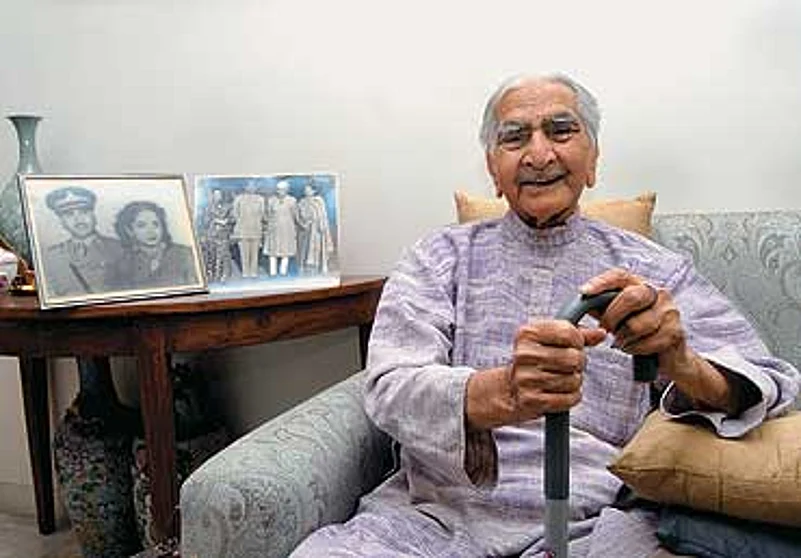
Dubey at home in Delhi, shortly before his 100th birthday
The young lieutenant was among thousands of imperial soldiers posted to keep an elusive peace (and learn the basics of warfare) on the restive borderlands between British India and Afghanistan. His fraying photo album, enticingly titled Razmak, captures it all, in pictures taken by army photographers: snaking columns of soldiers endlessly on the march through majestic but harsh terrain; jirgas of "hostile tribals" with loaded rifles and knives against the backdrop of jagged rocks; hilltop "picquets" that were always in danger of being overwhelmed by Waziri tribesmen who knew every inch of this treacherous terrain.... And so, as US forces in Afghanistan stab away at Waziristan in the 21st century, Dubey, who turns 100 this month, is moved to declare, with some authority, "No one can get the better of the red-bearded Pathan".
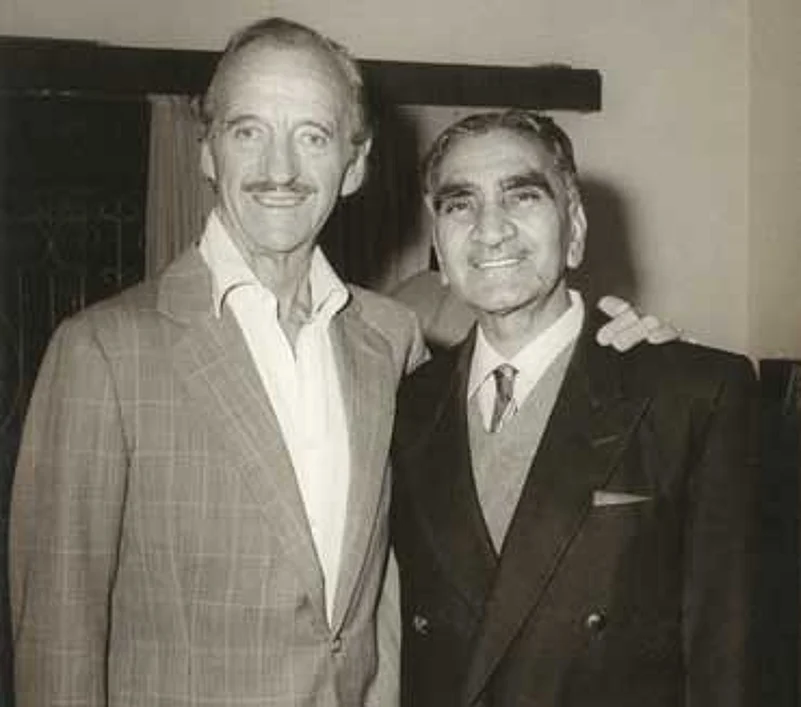
Dubey when British actor and former Sandhurst room-mate David Niven, caught up withhim in Delhi, in 1980.
His back straight, his voice strong as he instructs me to take a good look at his King's Commission (given in 1930 by George V), his memory sometimes hazy but at other times remarkably clear, this retired major-general is a bubbling cauldron of stories. Some come from his association with extraordinary characters. He had the distinction of being hauled up by the Adjutant of the Royal Military College at Sandhurst along with his room-mate, David Niven (later to become a famous actor), for daring to laugh in the presence of a royal visitor. Dubey also struck up an unlikely friendship with Lord Reading, a former viceroy, whom he met, of all places, on a train in England. He consoled his Sandhurst contemporary Ayub Khan when he was rejected by a British official in Simla for the post he wanted.
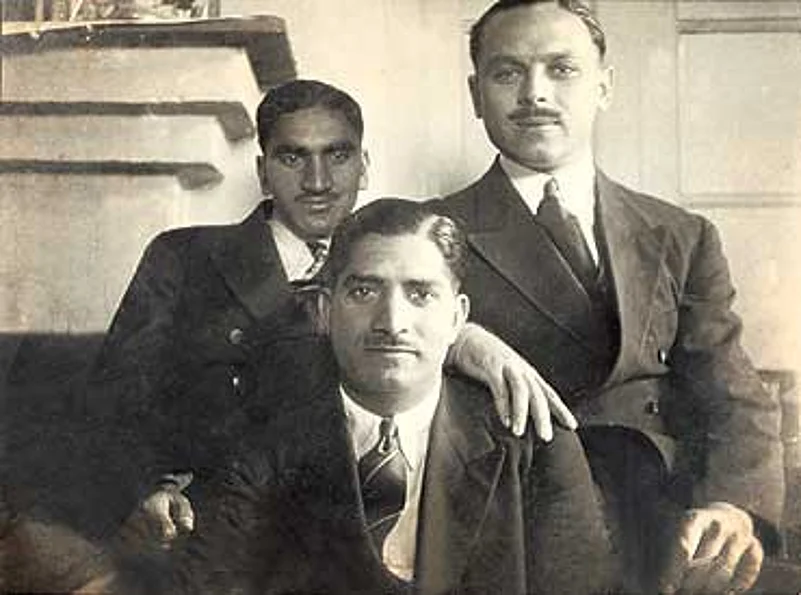
Dubey (left) with fellow King's commissioned Indian Officer Ayub Khan (right), later to become President of Pakistan, at Simla in 1932
Decades later, he found himself being embraced by the same Ayub, now President of Pakistan. He slept outside Nehru's room, guarding India's first PM while he spent the night in violent post-Partition Lahore. And earned a light-hearted rebuke from Nehru, he recalls, for not stopping a young Mridula Sarabhai from barging into his bedroom the next morning while he was doing a yogic headstand. Nehru put a hand on Dubey's shoulder and said, "It is dangerous to allow a girl to come into my room!" He was to interact with Nehru more closely next year, when he taught him how to take the military salute in preparation for sovereign India's first military parade, held at Delhi's Ramlila grounds. Dubey recalls that his pupil, who called him "guruji", was a "quick learner".
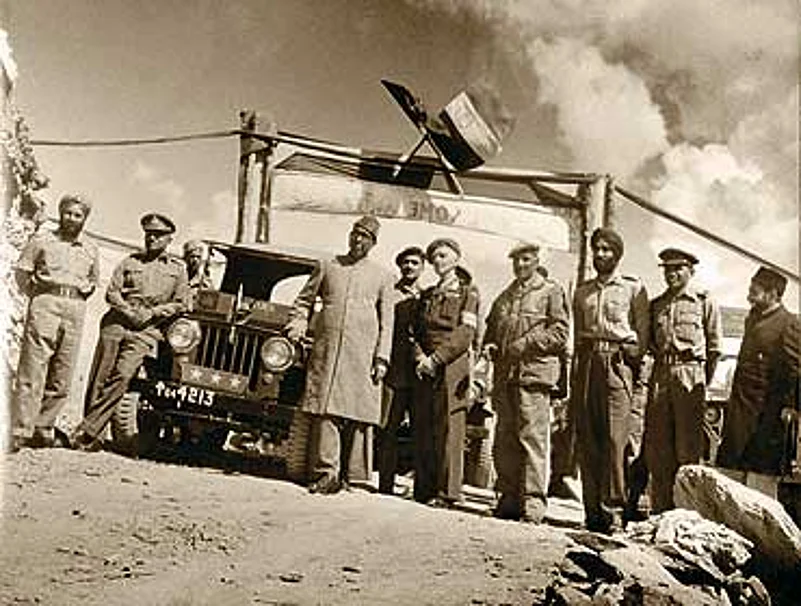
J&K CM Sheikh Abdullah with army brass, laying the Line of Control in Tithwal in Jammu and Kashmir in April 1949. Dubey, then Brigadier, stands between the Sheikh and the UN Observer, a swedish colonel.
Other memories arise from Dubey's involvement with extraordinary events, from the last decades of Empire to the turbulent years of new nationhood. He served in Iraq and fought the Japanese in Burma during World War II. As the first military attache to Pakistan, he escorted refugees to safety and had to replace Sikh sentries with Gurkhas when a mob fired on Sikhs guarding the makeshift Indian High Commission in Lahore. Then he plunged into independent India's first conflict, in Jammu and Kashmir, commanding the 2nd Dogra battalion. Later, he was given the nation-building task of integrating the princely state armies of Rajasthan into the Indian army.
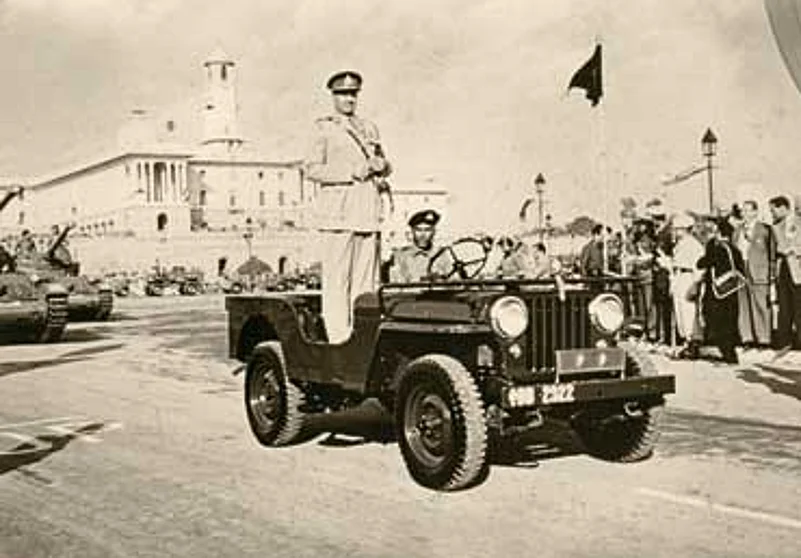
Leading a Republic Day Parade in the 1950s as General Officer Commanding, Delhi
As the oldest surviving King's Commissioned Indian Officer (KCIO)—and perhaps the only one left—Dubey is a one-man military institution, says Rana Chinna, a military historian at the United Services Institute. About 150-odd kcios were commissioned between 1920 and 1934, in response to nationalist demands for the 'Indianisation' of the British army. (Their successors were commissioned at the Indian Military Academy at Dehradun. ) The first Indian officers to be commissioned at par with the British, and to command British troops, their role was historic. "Their final interviews were conducted personally by the viceroy," says Chinna. "And there are few other soldiers alive, anywhere in the world," he points out, "who have seen service in the North West Frontier before World War II".
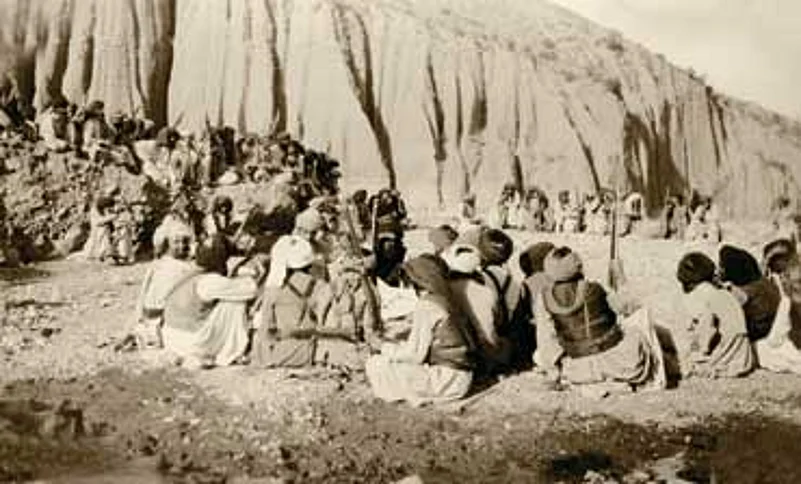
A page from Dubey's Raznak album - a jirga of "hostile tribals" in 1937.
So, fittingly, Gen Dubey's 100th birthday on March 26 is being celebrated not just by his family, but by the Dogra Regiment, which he joined after his First Punjab Regiment went to Pakistan after Partition. Central to the celebration is an exhibition of photographs from his collection, selected from among hundreds digitised by photographer Aditya Arya, a keen archivist who has collaborated with Dubey's family to preserve the pictorial wealth in his precious albums.
Chatting in his south Delhi drawing room, the general says his lifelong addiction to sports is the secret of his longevity. And yes, his jottings on an eventful career, penned last year with a steady hand, do suggest a life lived between battlefields, parade grounds and tennis courts. But daughter Indira and daughter-in-law Brinda also cite the centurion's undimmed appetite for life, which encompasses everything from newspapers—he reads five a day, with the help of a large magnifying glass—to desserts, for which he has a marked weakness. He hasn't, they say, lost his fighting spirit, despite frequent, painful battles with ill-health in the past year. When an army doctor recently told him to continue with his pleurisy medicine until his 100th birthday, Dubey's quick response was "And after that?"


























